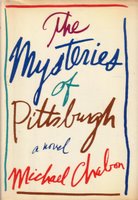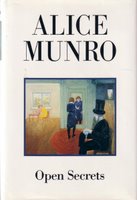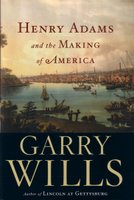
D.C.'s own George Pelecanos, the U.S. Capitol in the background.
Below, Michael Connelly, creator of the Harry Bosch series.


 81. Forgetfulness, Ward Just. Fiction , 9-9, p. 258
81. Forgetfulness, Ward Just. Fiction , 9-9, p. 258How to describe the novels of Ward Just? Think of LeCarre, Furst and Greene, but there is also something here of Pete Dexter and Edith Wharton. Just writes of the manners and mores of the covert world of espionage. There is a certain way things are done, a protocol, as is unveiled in the French interrogation scene in this novel – in its violence, both tangible and latent, it is almost difficult to read.
 82. The Mysteries of
82. The Mysteries of Boy meets boy. Boy meets girl. Boy falls in love with girl. Boy falls in love with boy. Boy is confused.
The Mysteries of Pittsburgh, Michael Chabon’s first novel, is the story of a young man confused about his sexual identity. One assumes it is Chabon’s own effort at working out his sexual identify, although a reader must be careful about assigning such autobiographical leanings to a novelist’s work.
There are many, many books to read. In How to Read a Novel, John Sutherland says that today more novels are published in one week than Samuel Johnson had to deal with in a decade. As he calculates it, “it would take approximately 163 lifetimes to read the fiction currently available.” Given Sutherland’s sobering statistic give this book a pass and move directing to Chabon’s later works.
 83. Open Secrets, Alice Munro. Short Stories, 9-19, p. 294
83. Open Secrets, Alice Munro. Short Stories, 9-19, p. 294 Alice Munro is the best writer of short stories today. Not one of the best – the best. I have read many of these stories before. I suspect I will read them again and again. Many current novelists would be well served to closely read Munro. She can capture a world in a phrase, a sentence, a paragraph that would take others pages.
 84. Henry Adams and the Making of
84. Henry Adams and the Making of This book is not for the casual reader of history, but it will greatly reward the diligent student of history. It is a fascinating look at the legacy of Jefferson and Madison as seen through Henry Adams’ ambitious multi-volume history of
 80. Guests of the Ayatollah, Mark Bowden. History, 9-6, p. 637
80. Guests of the Ayatollah, Mark Bowden. History, 9-6, p. 637 Mark Bowden is the author most likely to wear the crown abdicated, due to age and time, by David Halberstam. Bowden, like Halberstam, is one of the few writers today who is capable of taking multiple interviews, secondary accounts and voluminous personal research and constructing a coherent and engaging narrative.
This is the feat Bowden has accomplished in his extraordinarily readable Guests of the Ayatollah, an account of the 1979 Iranian hostage crisis that toppled the Carter Administration, launched Ted Koppel’s Nightline and permanently transformed
Bowden’s goal, in part, is to show how the hostage’s lived and survived during their 444 days of captivity. He does so vividly in an empathetic and powerful narrative. Bowden also demonstrates the impact of the crisis on both the Carter Administration and the Irianian leaders and students as well as leading us, step-by-step, through the misadventures of the failed rescue mission.
The hostages emerge as real people. Not so much heroes–although there is a heroic element to their suffering, strength and courage– as ordinary people making the best of extraordinary circumstances. President Carter warrants our sympathy perhaps as much as the hostages. He is a hopeful man whose Christian conviction leads him to believe that a resolution is possible – where none exists. Carter strives to do his best for the hostages and their families, and for
The hapless Iranians – the students, the secular leaders and iron-hearted mullahs – come off for the worst, as one might expect. No one in
Guests of the Ayatollah's 600-plus pages slip by with impressive speed; the book reads like an espionage thriller by LeCarre or Furst. It is skillfully told and impeccably researched. Let us hope Bowden wears his crown for many years to come.
(Bowden appeared at
 Richard Ford was at the Folger Shakespeare Theater in
Richard Ford was at the Folger Shakespeare Theater in There was no question I would attend. The PEN/Faulkner Reading Series is a great event—readings by notable authors, followed by a book signing, wine and hors d’oeuvres.
Besides, six of the seven books that I have by Ford are unsigned, including a first edition of the Pulitzer Prize-winning Independence Day. I purchased a half-price ticket (more money for books), packed up the books and headed to the Folger.
Ford read from Percy Walker’s The Moviegoer. The reading, in Ford’s honeyed southern drawl, was the most entertaining and engaging of the evening.
At the reading’s conclusion, I darted into the reception room, heading for the author’s tables and a place at the front of the line. Ford grabbed a drink and visited with admirers before making his way to the table, where an impressive line of fans had formed.
“Are you ready to sign some books?” I asked.
“No,” he said. “You’re just going to sell these on eBay.”
I protested. I’m a collector. 2,500 books. My wife wishes I’d them on eBay, but no, these are destined for my shelves.
“You probably haven’t read any of these.” I protested once more. I had read them. All of them. Well, not Rock Springs, but it’s on the pile of books to be read some day.
Ford did sign the books. We chatted about his new book, sequel to Independence Day and The Sportswriter, and the tour that will bring him to back to
I was pleased he signed the books, but I fixated on the idea that he thought I was a book dealer. This has been happening a lot lately.
This summer Ivan Doig, one of my favorite authors, appeared at Politics & Prose, the premiere independent bookstore in
“I just made that fellow a lot of money,” he growled as I approached. He looked at me and my stack of books with an accusatory glare. “I’m not a dealer,” I assured him. “I’m a collector. These aren’t going to be sold.”
Doig signed, as Ford had, but I thought he eyed me doubtfully from time to time as he made his way through the stack of books I’d placed before him.
I’m not entirely certain why an author cares if a dealer waits in line, gets a book signed and then sells it on eBay or some other Internet site. Perhaps it’s just the idea that someone – not the author – is making a great deal of money on a single copy of a book. But that’s been going on long before eBay came onto the scene. As for me, some of the books were purchased used, from dealers, but others were bought at full retail.
No matter, I don’t want authors thinking I’m a book dealer, selling the fruits of their labor on eBay. What can I do?
I know – I’ll start dressing better.
 79. Remember Me, Irene, Jan Burke. Mystery, 9-2, p. 303
79. Remember Me, Irene, Jan Burke. Mystery, 9-2, p. 303 I’ve been a fan of Jan Burke’s Irene Kelly series since reading Bones in 2000. Kelly is a reporter, married to a cop. She has a sister, two dogs and a cat. Invariably her work as a reporter leads her into mystery and intrigue. In the dozen years I was a reporter and editor I never solved a single murder and I’ve never known a colleague to do so either. Nor was I ever stalked by mad man (or woman for that matter), kidnapped or held hostage.
So Irene’s fictional career is far most interesting than the work-a-day world of most journalists. That’s OK because Burke’s novels are wonderfully entertaining. Kelly is a vibrant, spunky character and Burke does a fine job in bringing her and her cast of supporting characters to life.
The mysteries are not extraordinarily complex. Most often it’s not about whodunit or why (that’s usually clear early on), but how Irene will extricate herself from danger. This reader is grateful that Irene’s been successful through nine novels.
A
A second list, by City Pulse contributor Bill Castanier, included Ford’s The Sportswriter and Oates’ Them. It also included The Sporting Club by Tom McGuane and Waiting for the Morning Train by Bruce Catton.